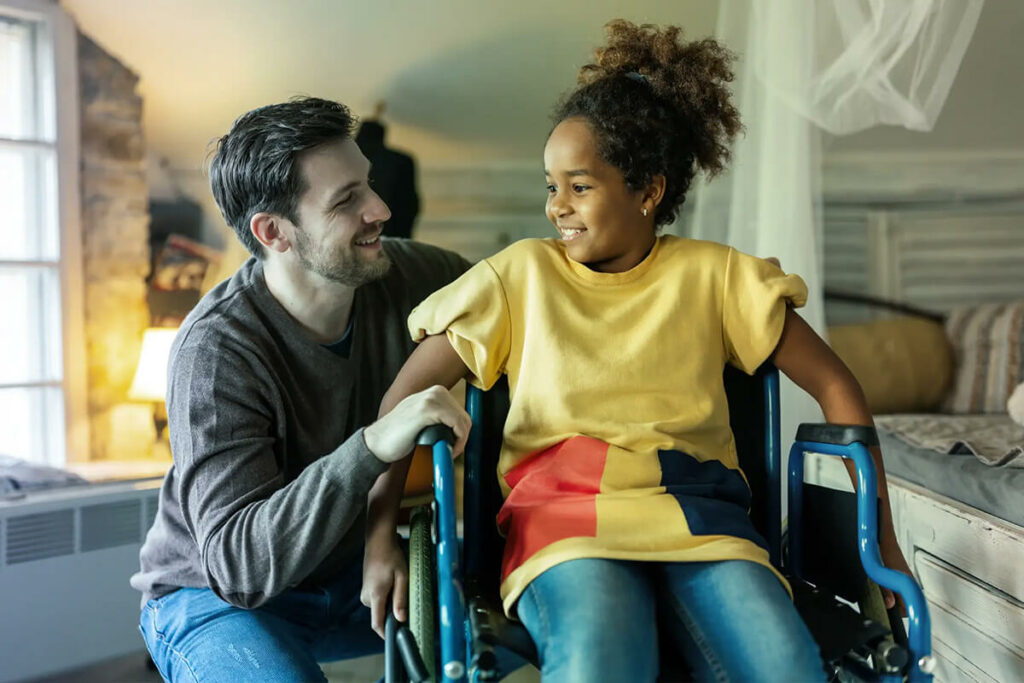Tips for Searching for Clinical Trials as a Caregiver
If you are a caregiver, you aren’t alone; according to the Caregiver Action Network, over 65 million people in the U.S. (about 29% of the population) provide care for a chronically ill, disabled, or elderly family member or friend. The role caregivers play is different for everyone, whether it involves helping with a few tasks or full-time, live-in care. Across this spectrum, it’s clear that caregiving is essential for our communities and deserves recognition and support.
Caregivers help their loved ones in many ways, but one that may not come to mind at first is finding clinical trials. Enrolling the person you are caring for in a clinical trial can help them find new ways to manage their health, while also benefiting others with the same condition. If you’re interested in learning more about how clinical trials work and your role in finding a trial as a caregiver, the information in this article can help you get started.
What You Should Know About Clinical Trials

Before we explore more details about finding clinical trials as a caregiver, we should first discuss what clinical trials are.
A clinical trial is the process of testing a new treatment option, such as a medication or device. Trials happen in different phases, starting with smaller groups and progressing to larger ones. Throughout every step of the process, researchers follow strict standards to make sure they collect accurate data and keep participants safe. If the trial shows the new treatment is effective, it can be approved to become available to more people.
What does this mean for your loved one? Clinical trials often provide access to treatments that are not available anywhere else, giving them a new option to manage their condition. In addition to the personal benefits, taking part in a trial is also a valuable gift to others with the same condition. It gives hope for new treatment options that wouldn’t be possible without research.
How to Find a Clinical Trial
Once you’ve decided that you’re interested in a clinical trial for someone close to you, the next step is exploring trials that could be a good fit. The process can seem overwhelming at first, but the good news is that there are many resources that can guide your journey and support you along the way.
Your loved one’s doctor is a great starting point for discussing clinical trials. Although not all doctors are involved in clinical trials, they will be able to answer some of your questions about the process and how it could fit with any current treatment(s). In some cases, they could recommend a trial that they are involved in or familiar with.
Even if your loved one’s doctor is not involved in trials, there are still many ways to find options. Sites like Carebox, Antidote, and ClinicalTrials.gov are great resources for searching for trials. You can look based on a condition and see key details about the trials within these tools.
From Searching to Finding the Right Fit
During this process, there are many elements to consider when deciding whether a trial is a good fit for the person in your care.
Each trial has different rules for who can participate. This may include how far along the disease is, whether your loved one has or does not have certain symptoms, other conditions, age, and a variety of other factors. Be sure to have their medical history available as you search. If you have any questions about whether a trial could be a good fit, reach out to the contact for that trial. They can talk through requirements with you and give you more details about the kind of participants the trial is looking for.
You should also consider the impact participation may have on you as a caregiver. Is the trial nearby? Will you need to travel to take your care recipient to appointments? Are there options to participate from home? This can help you plan to make sure participating is manageable not only for your loved one, but also for you. Many organizations in the clinical research community are working to improve access. The trial organizers may be able to point you in the direction of resources to help make participation easier, such as patient advocacy networks or support groups for caregivers.
Answers to Your Clinical Trial Questions
Throughout the process of finding trials for someone in your care, communication is key. If you have questions, be sure to speak up. Researchers understand the key role participants play, and they should support you in finding the answers you need.
Our Resource Library is also a valuable tool for finding more information about clinical trials. Whether you are actively searching for trials for your loved one or are just starting to look into clinical research, you can make a life-changing impact by learning more and spreading the word.






